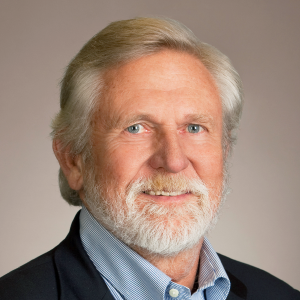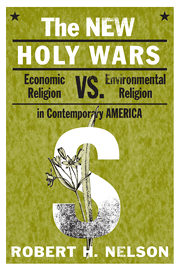Mainstream Protestantism has declined sharply in recent decades in the United States but the big speeches of our political leaders still routinely echo the Protestant history of the nation. The message is one of sin and redemption. We have committed many grave wrongs but the time has now come to repent and reform. We must renew our dedication to live up to the high expectations God holds out for us. As Americans, we are called to a higher standard because this nation is, as the Puritans said, a “city upon a hill” to shine a beacon to all mankind. This idea of a model for the world was secularized after the American Revolution to become a national model of progress, liberty, and democracy. Each new president is required to repeat this message on suitable occasions, if in ways suited to the specific economic and other circumstances of that president.
In his State of the Union address, President Obama offered the latest updating of the American national faith. We are a nation uniquely created, he said, on “common hopes and a common creed.” This mission is what “sets us apart as a nation.” We are a place where “every race and faith and point of view can be found,” binding us together as “one people”—a message of particular poignancy coming from the first black president of the United States. America must be “not just a place on a map, but the light to the world.” John Winthrop could not have said it better.
Owing to many large failings of our government and business leaders, who put indifference or greed above the national interest, we have recently suffered the worst economic downturn since the great depression. We have sinned again. But today, the president said, we are renouncing our wayward ways; instead, “we are poised for progress.” If we can address the many “challenges that have been decades in the making,” the products of our many past failures as a nation, our future success is assured.
But it will not be easy. We must be committed to remaking ourselves. As President Obama said, “Sustaining the American dream has never been about standing pat. It has required each generation to sacrifice, and struggle, and meet the demands of a new age.” God offers no guarantees.
Now we are challenged by China and India. Once it was the challenge of the former Soviet Union. “The Soviets beat us into space with the launch of a satellite called Sputnik,” the president recalled. But this failure simply spurred us to greater heights as a nation, within a decade going to the moon, all part of a new “wave of innovation that created new industries and millions of jobs.” If we simply show the appropriate resolve again, “This is our generation’s Sputnik moment.” But we must have faith in ourselves.
One of our greatest sins has been the corruption of our national politics by private interests and the forces of greed more broadly. We have lost all fiscal discipline. Deficits have ballooned, “the legacy,” the president said, of out-of-control “deficit spending that began almost a decade ago.” Again, a new national spirit of sacrifice will be required. The president proposed to freeze domestic spending for five years, which “will require painful cuts” for many Americans. We have also sinned against the environment in the recent past. Here again, large sacrifices will be required. “By 2035, 80 percent of America’s electricity will come from clean energy sources.” But here as well, America can reform its ways. We can meet the challenge: “We’re telling America’s scientist and engineers that if they assemble teams of the best minds in their fields, and focus on the hardest problems in clean energy, we’ll fund the Apollo projects of our time.”
There are many other such passages in the full body of the State of the Union address. The same messages have been heard over and over again in American political life ever since the Puritans settled in Massachusetts 350 years ago. The specific context of today is, of course, new. There are new examples, new policy questions, and new implementation proposals, but we are hearing again the basic story of America: We have sinned, we will be called to account, we must reform our ways, but God will bless us if we now heed his commands. We are the chosen people.
Unlike some of our previous presidents, President Obama barely mentioned God by name in his State of the Union speech (only once in the closing obligatory line, “God bless you, and may God bless the United States of America”). But his speech was Christian and specifically Protestant through and through. That is the way it is with religion in America in the twenty-first century. In our secular age, our thinking is no less religious, but the most important forms of religion are now implicit and at least partially disguised.
In his State of the Union address, President Obama offered the latest updating of the American national faith. We are a nation uniquely created, he said, on “common hopes and a common creed.” This mission is what “sets us apart as a nation.” We are a place where “every race and faith and point of view can be found,” binding us together as “one people”—a message of particular poignancy coming from the first black president of the United States. America must be “not just a place on a map, but the light to the world.” John Winthrop could not have said it better.
Owing to many large failings of our government and business leaders, who put indifference or greed above the national interest, we have recently suffered the worst economic downturn since the great depression. We have sinned again. But today, the president said, we are renouncing our wayward ways; instead, “we are poised for progress.” If we can address the many “challenges that have been decades in the making,” the products of our many past failures as a nation, our future success is assured.
But it will not be easy. We must be committed to remaking ourselves. As President Obama said, “Sustaining the American dream has never been about standing pat. It has required each generation to sacrifice, and struggle, and meet the demands of a new age.” God offers no guarantees.
Now we are challenged by China and India. Once it was the challenge of the former Soviet Union. “The Soviets beat us into space with the launch of a satellite called Sputnik,” the president recalled. But this failure simply spurred us to greater heights as a nation, within a decade going to the moon, all part of a new “wave of innovation that created new industries and millions of jobs.” If we simply show the appropriate resolve again, “This is our generation’s Sputnik moment.” But we must have faith in ourselves.
One of our greatest sins has been the corruption of our national politics by private interests and the forces of greed more broadly. We have lost all fiscal discipline. Deficits have ballooned, “the legacy,” the president said, of out-of-control “deficit spending that began almost a decade ago.” Again, a new national spirit of sacrifice will be required. The president proposed to freeze domestic spending for five years, which “will require painful cuts” for many Americans. We have also sinned against the environment in the recent past. Here again, large sacrifices will be required. “By 2035, 80 percent of America’s electricity will come from clean energy sources.” But here as well, America can reform its ways. We can meet the challenge: “We’re telling America’s scientist and engineers that if they assemble teams of the best minds in their fields, and focus on the hardest problems in clean energy, we’ll fund the Apollo projects of our time.”
There are many other such passages in the full body of the State of the Union address. The same messages have been heard over and over again in American political life ever since the Puritans settled in Massachusetts 350 years ago. The specific context of today is, of course, new. There are new examples, new policy questions, and new implementation proposals, but we are hearing again the basic story of America: We have sinned, we will be called to account, we must reform our ways, but God will bless us if we now heed his commands. We are the chosen people.
Unlike some of our previous presidents, President Obama barely mentioned God by name in his State of the Union speech (only once in the closing obligatory line, “God bless you, and may God bless the United States of America”). But his speech was Christian and specifically Protestant through and through. That is the way it is with religion in America in the twenty-first century. In our secular age, our thinking is no less religious, but the most important forms of religion are now implicit and at least partially disguised.












